For the Love of Sports: An Interview with Chris Mosier
A proudly out, trans athlete, Chris Mosier is working hard to ensure other LGBTQ athletes are able to compete


“I loved playing sports when I was growing up,” says Chris Mosier. “It was a way that I made friends and found community. No matter how strange people thought I was, or what they thought of me off the courts, or the field, they liked me when we were playing sports because I was a good player. I was a great teammate, and I made a lot of friends that way.”
Growing up in suburban Chicago, sports had always featured prominently in Mosier’s early life. During high school, he was a three-season athlete, playing volleyball, basketball, and softball. But when he went off to college, he walked away from competitive sports entirely.
“I really wanted to play basketball,” says the 36-year-old, who identifies as a transgender man. “But I was raised and socialized as female, and therefore was playing on women’s and girls’ sports teams growing up. I didn’t know I was trans going into college, but I knew that being on a women’s basketball team didn’t feel comfortable to me. At that point I sort of stepped away from athletics.”
He couldn’t stay on the sidelines for long. After college, Mosier began running to get back into shape, using it as a way to “reconnect” with himself as he began to explore his gender identity.
“I used running and weightlifting as a way to feel a little bit more connected with my body, when my body didn’t really feel like a home. There were certain parts of my body that I felt didn’t really fit the way that I thought I would grow up to be, and so I thought, if I lift weights a little bit, and I can get a broader back, maybe make my shoulders look a little bigger, I could feel as though my body fits a little bit more with what my perception of who I am, and how I want people to interact with me.”
Mosier intensified his training regimen, eventually tackling marathon running. After his first marathon, he began looking for other ways of pushing himself physically. He bought a bike and started riding, and taught himself how to swim competitively. For a year-and-a-half, he competed in several triathlons, earning high rankings in the women’s category before deciding, in 2010, to officially transition and compete in the men’s category. In 2015, Mosier became the first out trans athlete to join Team USA, earning a spot on the men’s duathlon team for the 2016 World Championship.
“It’s been interesting seeing just how much sports has been a safe space for me to be my authentic self,” he says. “My teammates and the people I compete against really have been some of my biggest supporters, which was not what I expected, to be totally honest. I thought that I would have a harder time transitioning in sports, but the people who knew me as an athlete, and the people who have competed with me and against me, or compete against me now, respect me as an athlete first and foremost, and embrace me as a transgender person.
“I think that’s the beauty of sports — they really can transcend any differences that we have,” he says. “It doesn’t matter your background, it doesn’t matter your history, it just matters how you are when you show up to play.”
It’s a message Mosier finds himself repeating in his job at the LGBTQ advocacy group You Can Play, where he serves as vice president of program development and community engagement. He also moderates the website Transathlete.com, which he created in 2013 to serve as a resource for transgender athletes, their coaches, and sports administrators. The website currently lists the policy for every state high school sporting association in the United States, from the most inclusive to those he calls “really horrible and discriminatory.”
“When I was living in that year-and-a-half of delaying my transition, I was really looking for information to see, ‘Will I be able to participate in the sports that I love as a trans person?'” says Mosier. “A lot of places didn’t have policies, and they didn’t have policies published. I wanted to create a website so that all of these policies were in one place. I’ve been able to use that website as a way to advocate for change in different sports organizations, by helping to change their policies to be more inclusive.”
Mosier is an honorary co-chair of D.C’s bid to host the 2022 Gay Games XI, along with tennis legend Billie Jean King, former NFL Commissioner Paul Tagliabue, and former U.S. Attorney General Eric Holder.
“I think Chris’ story embodies one of our core principles, which is inclusion,” says Brent Minor, chair of Gay Games DC 2022, the group assembling the bid (see story, page 31).
“We want to have every person feel as if they belong at the Gay Games,” Minor continues. “It’s important to show that in real examples, not just by words. And I think Chris embodies that — not just through his advocacy work on behalf of the transgender community, but through his strong advocacy for the inclusion of the entire LGBTQ communtiy through his work with the You Can Play project.”
Ever since he was shown the plans for D.C.’s bid, Mosier has been enthused about the prospects: “I truly believe that we will be bringing the Gay Games to Washington, D.C. in 2022.”
METRO WEEKLY: Let’s start with coming out. What was yours like?
CHRIS MOSIER: Coming out was a very long process, and I think a big part of my story is that sport definitely influenced my coming out. I delayed my transition and coming out to people for over a year because I was worried about not being able to continue to compete in sports that I loved — running races and triathlons. I had never seen another trans person transition, I’d never seen a trans man compete against men after a medical transition, and that’s really what I wanted to do. I didn’t really know if it was possible because I didn’t see it.
I came out to my brothers and my mom, and it was fine, and I think I’m closer with my brothers since coming out, which has been a really amazing thing, to have family support and embrace me as the person that I know — and that they’ve probably always known — that I really am.
In terms of coming out publicly, I wanted to because I felt that my story of being a transgender athlete, and not seeing other transgender men competing against men, I could provide that example for other people so they could know that it was possible. A big part of my experience is just wondering could I even do this? I think it would have been a total game changer for me to have seen someone doing what I wanted to do, to have that example. If you can see it you can be it. I really wish that I had had that role model, or that person to look to, in my process. After I did my first Ironman race as male, I came out publicly in The Advocate, and a little bit after that there was an article in The New York Times, and I think that’s what really was my big public coming out.
MW: After you transitioned, how long did you have to wait before you could compete as a male athlete?
MOSIER: The USA Triathlon, which governs U.S. races, and the International Triathlon Union, which does the international races, both follow the International Olympic Committee policy guidelines on transgender participation. Previously, they followed what was called the Stockholm Consensus. When I made Team USA in 2015, I was ineligible to compete at the world stage because of the Stockholm Consensus, which said that transgender athletes needed to have a full lower surgery — internal and external genital modification — in order to compete in international competition.
I challenged that policy and in January of 2016 it was changed, creating the more inclusive guidelines that said that transgender men did not need to wait in order to participate. Trans men can compete whether they’re taking hormones or not. Transgender women have to wait one year of cross-hormone therapy, as opposed to the previous guideline which said two years, and [the IOC] struck down and removed the surgery requirement completely, saying that it was a human rights violation.
MW: What can be done for trans student athletes, like Texas wrestler Mack Beggs, who are forced to compete according to their biological sex?
MOSIER: I think that people saw in Mack Beggs’ case, that the Texas policy was very wrong, and I think that people saw and understood that it was really unfair for Mack. It was unfair to be forced to have to choose to either wrestle with girls or not wrestle at all, and as an athlete, a competitor, of course he chose to wrestle. Nobody’s been blaming Mack. It’s a very bad policy in Texas that put him in that position.
I think a big part of the issue in Texas is purely a lack of education about transgender athletes and transgender people. People have these stereotypes, these misconceptions, and none of them are true.
For me, as an advocate, the best that I can do is highlight the inequality in some of these policies, and the discrepancies in the policy, and what would make the policy better. I can highlight good policies and show how those are actually working to protect all students, and help to educate while advocating for the participation and inclusion of all athletes, including transgender athletes.
All young people should have access to sports, regardless of their gender identity. Young people learn so many good things from participating in sports, they gain so many skills and learn so many good values, and it’s an important part of their physical, mental, social, and intellectual development.
MW: Connecticut has pro-transgender policies, but people complained after trans freshman Andraya Yearwood won titles in girls’ track. How do we better educate people about trans athletes, even in states with strong policies?
MOSIER: I think Andraya is a great example of a young person who has the courage to continue to play the sport that they love as a trans person. As we have more of these brave young athletes with support systems that enable them to continue to be the person that they know that they truly are, and play the sports that they love, we will start to have more conversations about the inclusion of transgender athletes.
It’s complicated. There’s not just one way to be a transgender athlete. My situation as a transgender man, particularly as a transgender man taking testosterone, is very different than a trans high school girl. I think that as we have all of these different ways to be a transgender athlete, we’re going to need to have conversations about each of them, because each case is different. It’s going to take time to educate people.
MW: How did you get involved with You Can Play?
MOSIER: I’ve been a friend of You Can Play for many years, since I’ve been doing advocacy work. Previously, I was the director of GO! Athletes, a national network of current and former LGBTQ student athletes. In my work with GO! Athletes, and working directly with the students, we often paired with You Can Play, as they did panel discussions and workshops and things like that. I’ve been working peripherally with the organization through GO! Athletes and Transathletes.com for several years. A position opened up and it seemed like a perfect fit for the skills and experiences that I had. It allowed me the amazing opportunity to be a full-time advocate and to also focus on my training as a transgender athlete. Before this, I was working in higher education. I had a regular nine-to-five job, and was doing all this advocacy work in my spare time, just as a passion. You Can Play really been an amazing opportunity for me to match my passions to my full-time gig.
MW: What are your main responsibilities?
MOSIER: My responsibility is to create our educational materials. I think people know You Can Play for our visibility, for our game nights, and for our partnerships with professional leagues. What they may not know is the amazing education work that we do in helping to fight against casual homophobia, and to create safer and more inclusive spaces in sports. I am responsible for creating those materials, for our our college partnerships. We work with a lot of student athletes and coaches, so I’m responsible for that.
I also oversee our regional boards. You Can Play relies on the volunteer efforts of a lot of very passionate current and former athletes, people who want to be involved in the sports equality movement. So we have ways to help them fulfill their participation, to be active in their local area. We have many former athletes who have come out, who have experience in advocacy, who want to be involved in the movement, and we empower them to go to their former high schools or colleges, or local sports leagues, to spread our message of inclusion and respect in sports.
MW: Has homophobia in sports decreased?
MOSIER: Change happens over time. You Can Play is a relatively young organization. We’ve been doing this work since 2012, and we’ve been taking steps to create change over time. First, we are having conversations about how homophobic language is not acceptable in professional sports. Ten years ago, players weren’t fined for saying things. They weren’t being disciplined in the same way for saying homophobic terms. We know that most athletes know that that’s not acceptable, and that teams and leagues take action when something happens.
I think one of the really cool things is, if we see something like this happen, if a player says something that they shouldn’t say, something that’s homophobic or transphobic, there’s an educational moment that happens afterwards, where many of these athletes become advocates and allies themselves later on.
A lot of the homophobia in sports is very casual. It has become, over time, just a part of the culture of sports that people have accepted. What we’re doing is shifting the perception of what is acceptable in the culture of sports. We’re challenging that actively, not only in the locker rooms, but on the courts and on the fields, saying this needs to be a safe and respectful place for everyone, regardless of your sexual orientation and your gender identity.
We’re seeing more athletes step up as advocates, wearing the equality shirts, making You Can Play videos, saying that they would be representatives on their team to speak out against homophobia. I think that’s huge. That’s something that we didn’t see ten years ago. I think that there’s a cultural shift that’s happening in sports. There are some lingering pieces of casual homophobia that still exist, but I feel like we are seeing the slow move of change in the right direction.
A great example is with America East Conference, a college conference in the Northeast that is a partner of You Can Play, and every single school in that conference does You Can Play games. What we see is that the athletes have taken so much ownership over this partnership that they can’t wait for their games. They ask their coaches and their athletic directors, “When is your You Can Play game?” They set up tables, they set up information for people to sign on to do pledges, to combat homophobia on campus. They’ve really taken the ownership of making that partnership real and meaningful for the athletes. They also have many out athletes in their league as a result of it. They have athletes who feel safe and comfortable on their teams, who can be their authentic self, because their teammates who are not part of the LGBT community have stepped up and said, “We want to make this a safe place for everyone.”
MW: What differentiates a You Can Play game from a regular game?
MOSIER: A You Can Play game looks different depending on what that mission is. We’ve done You Can Play games with professional sports teams, as well as college and high school teams, but it really is a night to highlight the You Can Play message, which is, “If you can play, you can play.” That all athletes are judged on their ability and their desire to compete, their work ethic, their competitive spirit, their skills, and not their sexual orientation or their gender identity. There’s usually an educational component, where some facts and statistics are posted so that people can see why this is important. Many of the teams have customized rainbow color logo shirts, or spread the message of You Can Play in some visual way. It could also be something like having LGBTQ members singing the national anthem. It’s similar to a pride event, it’s to highlight participation in the LGBTQ community, and to show that sport is a safe place for all people: athletes, coaches, and fans.
MW: Have professional sports made sufficient strides in being accepting of LGBTQ people? We still don’t really have many out players in professional sports.
MOSIER: I think we need to stop focusing so much on being publicly out. Being out is not the be-all, end-all to inclusion. While we might not have publicly out people, we know that there are out LGBTQ athletes, people who are out to their teams, and just not out publicly.
What we’re seeing is that sport has become a more inclusive space, and you really can’t underestimate the impact and the power that visibility has. I know that it would be important for us to have out athletes, but just having these spaces where we are highlighting and including the LGBTQ community in a really meaningful way, in a You Can Play night, shows athletes, coaches, and fans that it would be a safer, more respectable environment than one might think.
We are extremely proud of partnerships that we’ve had with professional sports teams and leagues, specifically the work that we’ve done with the NHL this year. February was “Hockey Is For Everyone” Month, and we had ambassadors for You Can Play on every NHL team. I think that’s not only a powerful gesture, but a powerful activation, because it wasn’t just for show. These athletes really wanted to be outspoken advocates and allies for the community. They volunteered for those positions. I think that was really meaningful and important for the LGBTQ community to see a sport like hockey take that step to actively advocate for inclusion in sports. And in a sport that many people wouldn’t guess would be at the cutting edge of inclusion. I think that’s really amazing work that they’ve been doing in their partnership with You Can Play.
MW: The NCAA, the NBA and other associations have been criticized for betraying the LGBTQ community by allowing North Carolina to host events after the so-called “repeal” of the anti-LGBTQ HB 2 law, which actually kept some of the law’s worst provisions in place. What are you doing to respond to such issues?
MOSIER: I personally was involved in fighting against HB 2 and HB 142, and was publicly outspoken about my disappointment in the NCAA returning there. As a transgender athlete, I felt it was an extremely disappointing decision for them to return, which really compromised the safety of members of the LGBTQ community in a way that didn’t align with what the NCAA says its values are.
MW: Let’s turn to your role in the Gay Games bid. A couple of years ago, D.C. lost out to Cleveland for the 2014 Gay Games. Now, we’re a finalist, along with Guadalajara and Hong Kong. Why is it important to have D.C. host the games?
MOSIER: I went to the Gay Games for the first time in Cleveland. As a trans athlete, I have to say, that was one of the most amazing sporting experiences of my life, and I was really shocked that it happened in Cleveland, of all places. The excitement, and the buzz, and the feeling of being surrounded by a community of other LGBTQ athletes at such an important event still gives me goosebumps. It is an experience that I will never forget in my entire life.
I can think of no better place for the games in 2022 than Washington, D.C. Can you imagine playing sports with this sort of iconic backdrop of the national monuments behind you? If you’re thinking of one location in the United States that represents inclusion, that has an international draw, it really is Washington, D.C.
MW: How many people will the Gay Games draw to the city, if we win?
MOSIER: I believe that, for the bid in Washington, D.C., we said that Gay Games XI would draw between 12,000 and 15,000 competitors, and then upwards of 80,000 to 100,000 spectators to the metro D.C. region. They estimate an economic impact of over $100 million.
MW: Hosting an event like the Gay Games requires police presence, public transportation, lodging, food and more. Has the D.C. bid committee addressed all of those needs in its proposal?
MOSIER: Absolutely. Like I said, I can think of no better place in the United States than Washington, D.C. to host Gay Games. D.C. is a destination for many large-scale events, and has successfully hosted large events in the past. The city itself is well-equipped to handle the influx of people, and there are things for those people to do that are easily accessible, such as the free museums.
What I’ve been most impressed with, as a co-chair, is seeing how invested the D.C. community is in getting this bid, and making sure that the Gay Games come to Washington D.C. One of the reasons this bid is so strong is that it has the buy-in of the community. Many of the sports at the Gay Games have a Team DC-affiliated sports team that will be involved in the actual planning of the sport when the Games are held in Washington. It’s not just excitement from the leadership structure, from the bid committee, but it’s really filtering down to the teams that will be competing.
The fact that the mayor has pledged support, and is a great ally and advocate for the Gay Games, shows that it’s not just one group that wants to bring them here. It really is the entire community. D.C. as a whole wants to host the Games. I think that’s really important, to have that buy-in from people in leadership positions to say, “Not only do we want to bring the Games here, we want to make it the best Games ever.”
MW: Was there any concern about whether anti-Trump sentiment might hinder the bid?
MOSIER: I don’t think so. It’s almost a non-factor. In some ways, I’d even say it’s a motivating factor. What better way to show our resilience, our power as a community, than to gather everyone in that location, and have the games right there in the White House’s back yard? It just shows that we are a lot more powerful, a lot more resilient, and that we won’t stop living our lives in a meaningful way because of one person’s policy-making.
MW: Will you be part of the delegation that goes to Paris and makes the final presentation?
MOSIER: I sure hope so. You’ll have to ask Brent Minor. We haven’t handed out the details of that yet, but I’m just so excited and enthusiastic about bringing the Gay Games to Washington, D.C. We had such amazing Games in Cleveland, and I think about what that experience was like for me in Cleveland, a place that I would’ve never gone to otherwise. But Washington is a destination city for so many people. Outside of the Gay Games, there are so many reasons to come to Washington, D.C., and it would just be such an iconic location to host the Gay Games, to really bring people together and celebrate participation, inclusion, and unity amongst LGBTQ athletes.
For more information on Washington, D.C.’s bid to host Gay Games XI in 2022, visit ggdc2022.org.
For information and resources to help support transgender athletes, visit transathlete.com.
For more information on You Can Play, visit youcanplayproject.org.
Support Metro Weekly’s Journalism
These are challenging times for news organizations. And yet it’s crucial we stay active and provide vital resources and information to both our local readers and the world. So won’t you please take a moment and consider supporting Metro Weekly with a membership? For as little as $5 a month, you can help ensure Metro Weekly magazine and MetroWeekly.com remain free, viable resources as we provide the best, most diverse, culturally-resonant LGBTQ coverage in both the D.C. region and around the world. Memberships come with exclusive perks and discounts, your own personal digital delivery of each week’s magazine (and an archive), access to our Member's Lounge when it launches this fall, and exclusive members-only items like Metro Weekly Membership Mugs and Tote Bags! Check out all our membership levels here and please join us today!





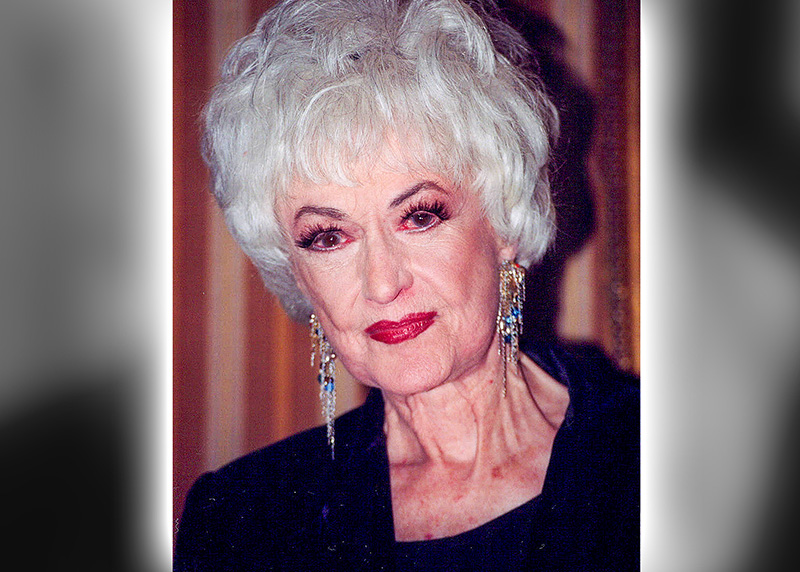
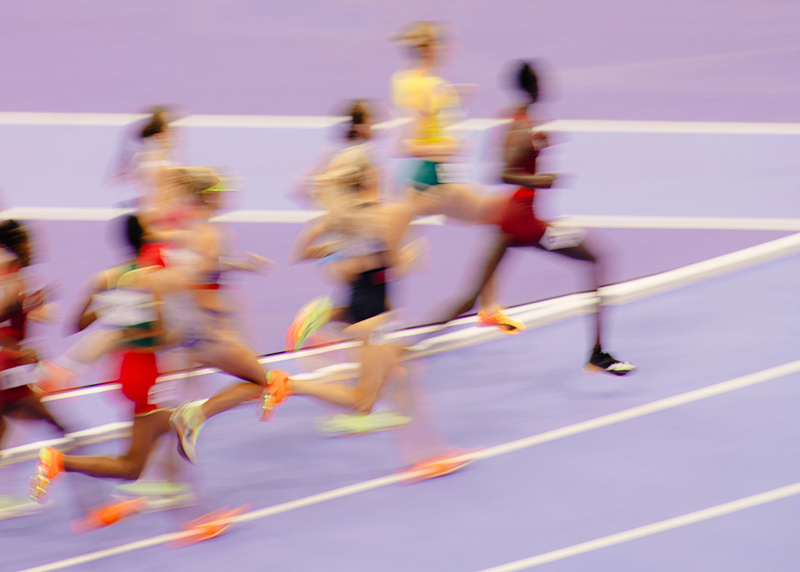
















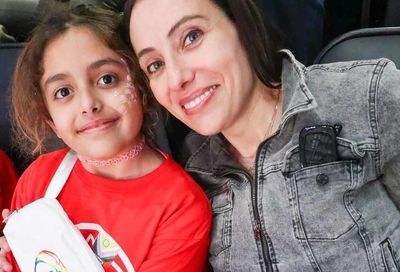
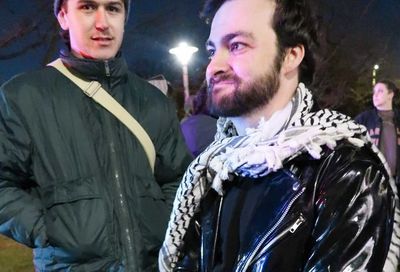
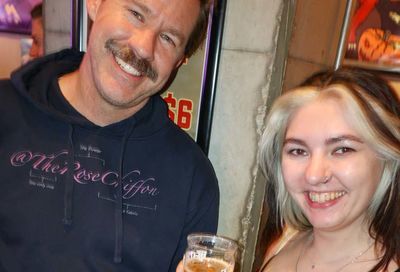
You must be logged in to post a comment.